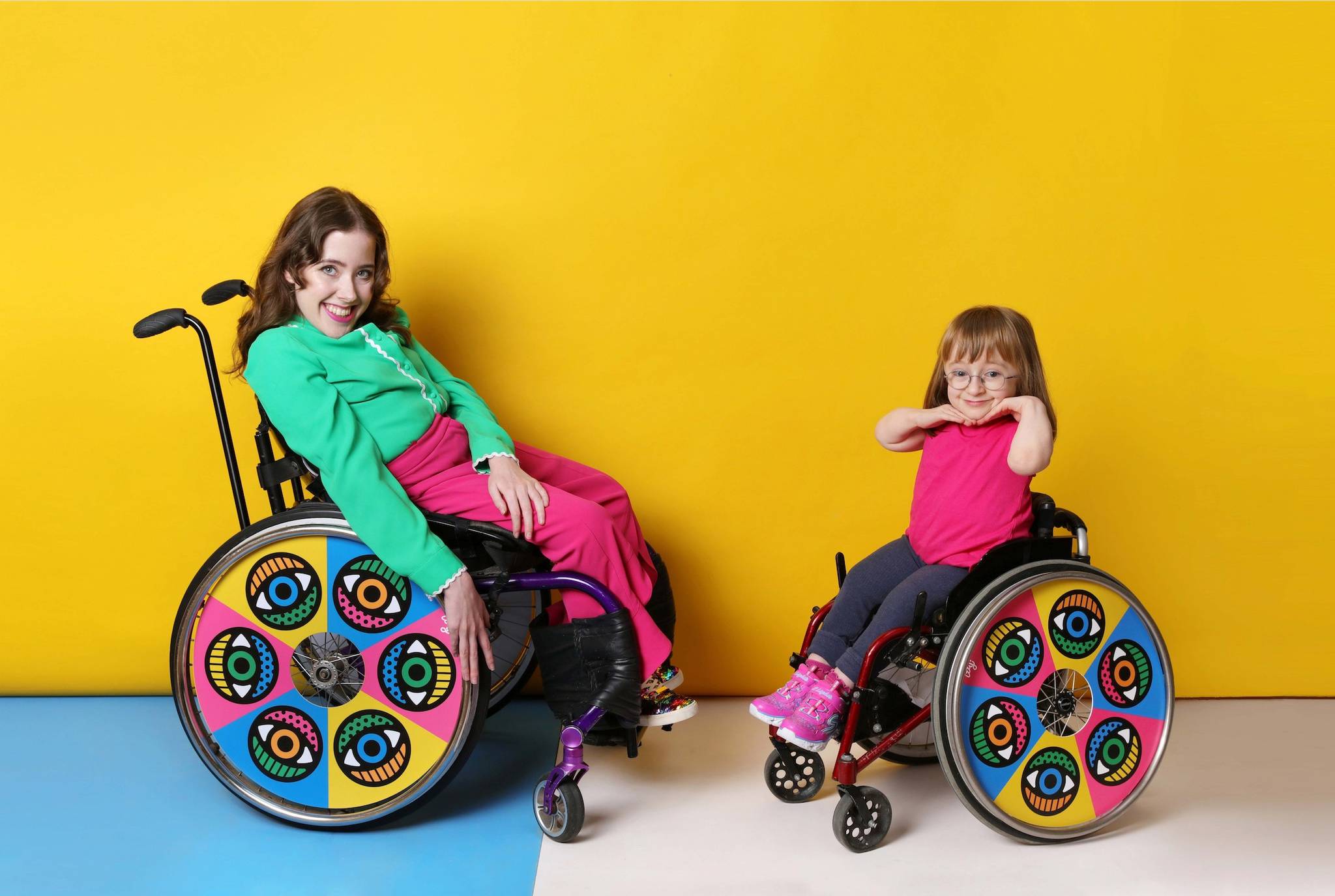
As calls for more nuanced representation of the disabled experience get louder, Izzy’s Wheelchairs is moving the focus and discourse surrounding disability away from utility and instead championing the individuality of the user with a fashionable spin on the modern wheelchair.
Founded by sisters and disability advocates Ailbhe and Izzy Keane, Izzy’s Wheels is a start-up looking to reimagine mobility solutions for disabled communities. Shifting the focus away from purely functional design, the brand creates fashionable wheel covers that users are able to strap to their wheelchairs for personalisation. Coming in different sizes, the covers cater to both adults and children and feature designs from world-famous artists as well as collaborations with brands such as Hello Kitty and Barbie. “Izzy’s Wheels empower wheelchair users to make a statement about themselves, it makes a person's wheelchair into a friendly object rather than something purely functional," says Izzy Keane. "Having stylish wheels on your chair that match your outfit or show off your interests immediately addresses the chair and opens conversation."
Despite the growing call for greater visibility of people with disabilities across media and industries, 96% of people with a disability in the UK believe that there isn't enough representation of disability in the fashion industry. Given that a vast majority of adaptive fashion and mobility solutions tend to focus on functionality, with little attention paid to the commercial context or the aesthetic preferences of the user, the call for a more personalised and holistic approach to disabled fashion and product design is growing. Moving the focus towards more stylistic solutions, Nike’s hands-free FlyEase highlights the aesthetic potential of adaptive fashion, while Adaptista – a platform dedicated to fashion-forward adaptive offerings – is launching in November 2021, shortly after Disney's adaptive Halloween costumes take to the streets.